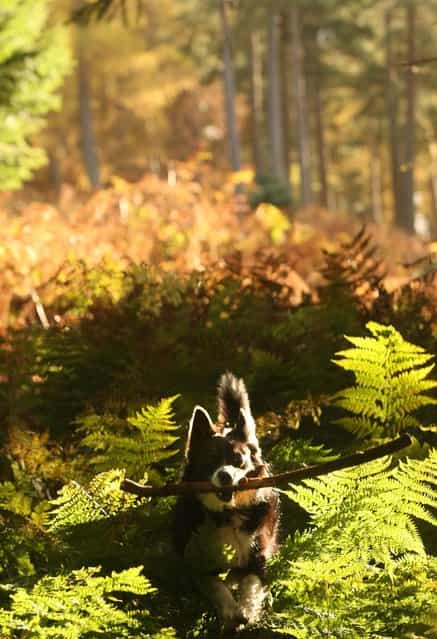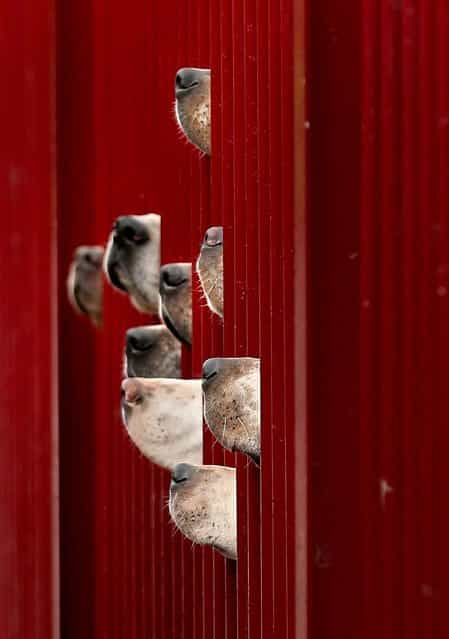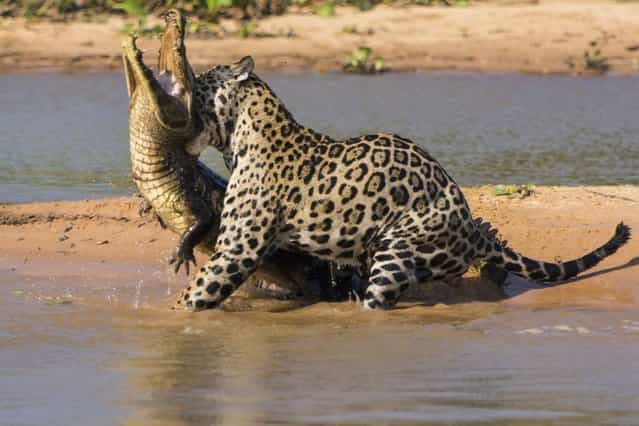The Wild Animal Sanctuary
Advertisements:
[The Wild Animal Sanctuary is a U.S. organization that specializes in rescuing and caring for large predators which are being ill-treated, for which their owners can no longer care, or which might otherwise be euthanized.
Created in 1980, The Wild Animal Sanctuary is situated on 720 acres (291 ha) of grassland near Keenesburg, Colorado North of Denver, and has helped over 1,000 animals since it first opened. As of 2010, it was home to over 290 animals.
The stated mission of the sanctuary is [to rescue captive large carnivores who have been abused, abandoned, illegally kept or exploited; to create for them a wonderful life for as long as they live; and to educate about the causes and solutions to the Captive Wildlife Crisis]. The sanctuary states that there are many large carnivores living outside the zoo system in the United States, including 4000 or so tigers living as pets in Texas alone, and many of these come from the black market trade in exotic animals.
Pat Craig started The Wild Animal Sanctuary when he took in a Jaguar cub that he kept on a licensed facility on his familys farm outside Boulder, Colorado. The animals were soon moved to Lyons, Colorado to provide additional space. After 8 years in Lyons, a limestone quarry was opened nearby, forcing the sanctuary to move.
In 2005, largely because of relief efforts for Hurricane Katrina and the Indonesia tsunami, donations to the sanctuary decreased significantly, and by mid 2006 the staff thought the sanctuary would need to close. In order to help raise money, the sanctuary was opened to the public, started selling donated merchandise, brought in more volunteers, and started a program of sponsoring individual animals.
As of 2010, the sanctuary has 21 large 5-to-25-acre (2 to 10 ha), species specific habitats that are home to over 290 Lions, Tigers, Bears, Leopards, Cougars, Wolves and other large carnivores. Habitats include pools for swimming and underground dens that stay at a constant temperature year round. Visitors can view these animals in their natural habitats from a series of elevated catwalks accessed from the education center]. – Wikipedia
Photos: Animal caretakers feed animals at The Wild Animal Sanctuary on October 20, 2011 in Keenesburg, Colorado. The non-profit sanctuary is a 720 acre refuge for large carnivores that have been confiscated from illegal or abusive situations and is currently home to over 290 lions, tigers, bears, wolves and other animals. Opened in 1980, it is the oldest and largest carnivore sanctuary in the United States. (Photo by John Moore/Getty Images)
Created in 1980, The Wild Animal Sanctuary is situated on 720 acres (291 ha) of grassland near Keenesburg, Colorado North of Denver, and has helped over 1,000 animals since it first opened. As of 2010, it was home to over 290 animals.
The stated mission of the sanctuary is [to rescue captive large carnivores who have been abused, abandoned, illegally kept or exploited; to create for them a wonderful life for as long as they live; and to educate about the causes and solutions to the Captive Wildlife Crisis]. The sanctuary states that there are many large carnivores living outside the zoo system in the United States, including 4000 or so tigers living as pets in Texas alone, and many of these come from the black market trade in exotic animals.
Pat Craig started The Wild Animal Sanctuary when he took in a Jaguar cub that he kept on a licensed facility on his familys farm outside Boulder, Colorado. The animals were soon moved to Lyons, Colorado to provide additional space. After 8 years in Lyons, a limestone quarry was opened nearby, forcing the sanctuary to move.
In 2005, largely because of relief efforts for Hurricane Katrina and the Indonesia tsunami, donations to the sanctuary decreased significantly, and by mid 2006 the staff thought the sanctuary would need to close. In order to help raise money, the sanctuary was opened to the public, started selling donated merchandise, brought in more volunteers, and started a program of sponsoring individual animals.
As of 2010, the sanctuary has 21 large 5-to-25-acre (2 to 10 ha), species specific habitats that are home to over 290 Lions, Tigers, Bears, Leopards, Cougars, Wolves and other large carnivores. Habitats include pools for swimming and underground dens that stay at a constant temperature year round. Visitors can view these animals in their natural habitats from a series of elevated catwalks accessed from the education center]. – Wikipedia
Photos: Animal caretakers feed animals at The Wild Animal Sanctuary on October 20, 2011 in Keenesburg, Colorado. The non-profit sanctuary is a 720 acre refuge for large carnivores that have been confiscated from illegal or abusive situations and is currently home to over 290 lions, tigers, bears, wolves and other animals. Opened in 1980, it is the oldest and largest carnivore sanctuary in the United States. (Photo by John Moore/Getty Images)
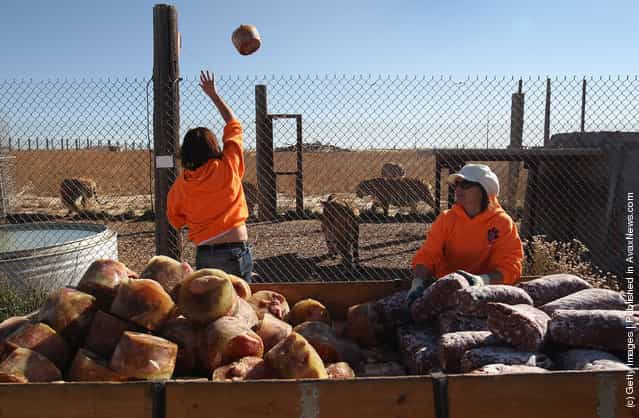
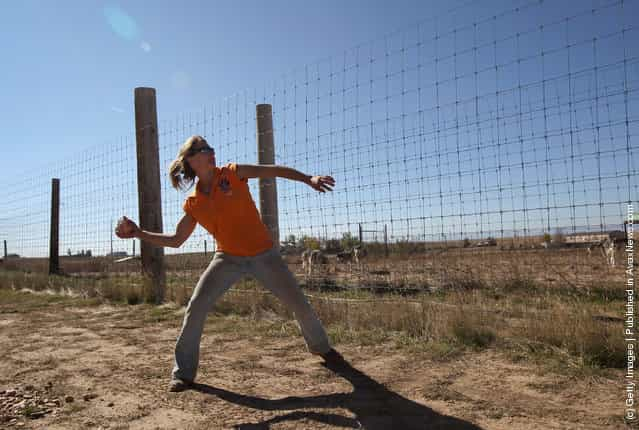
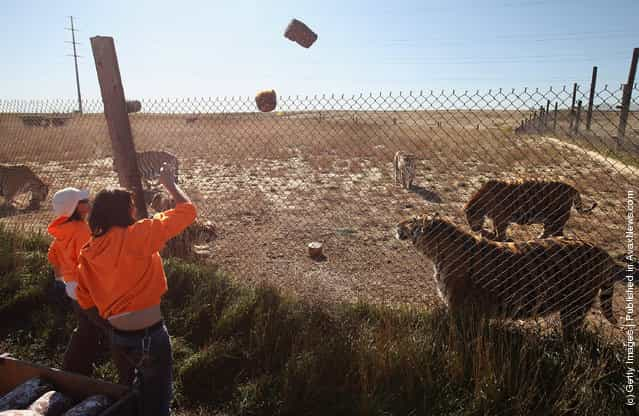
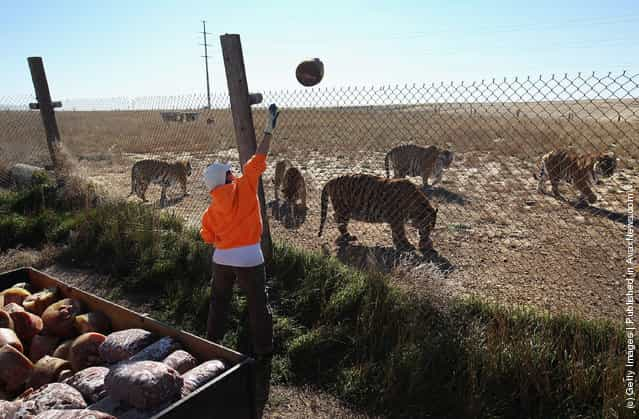
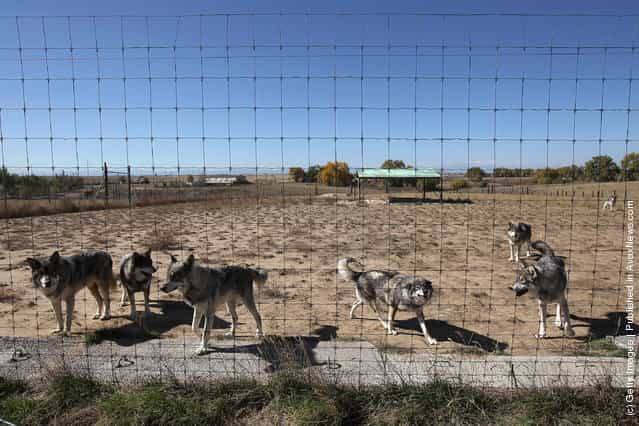
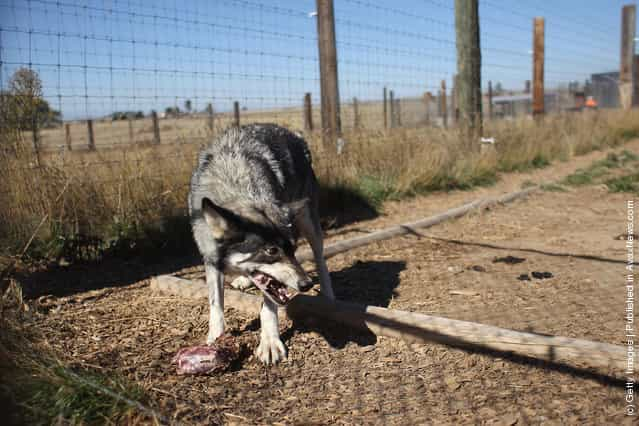
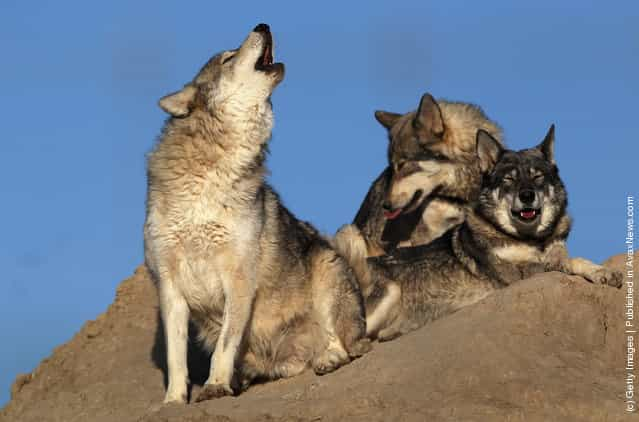
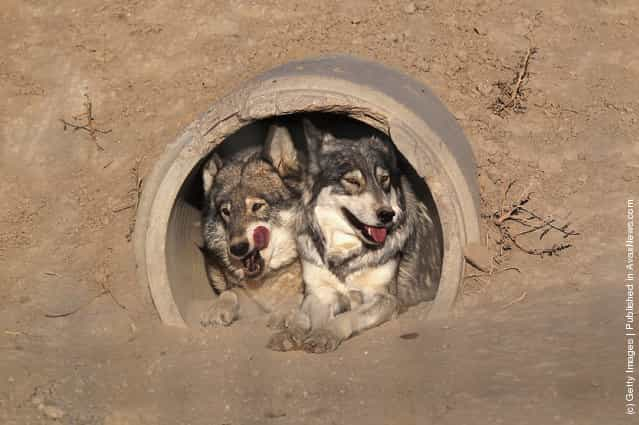
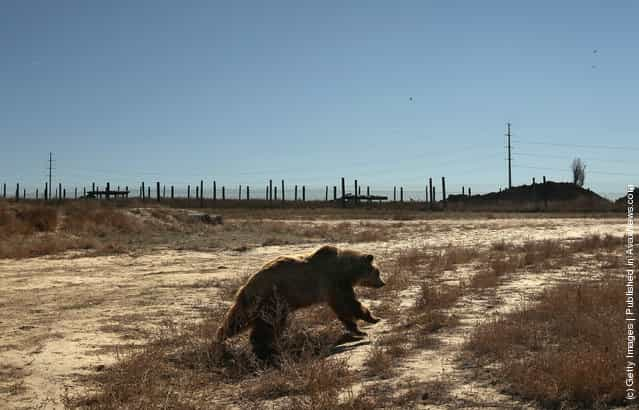
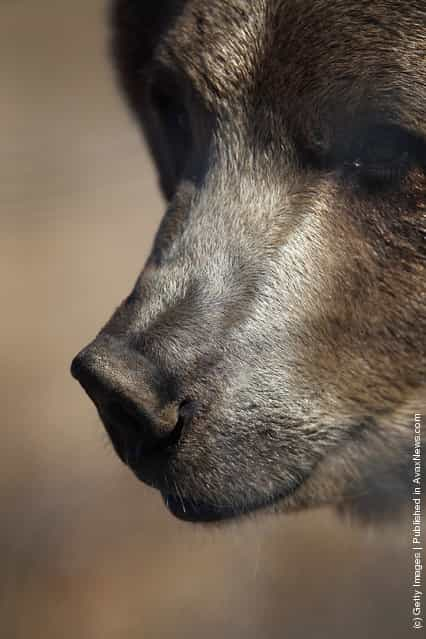
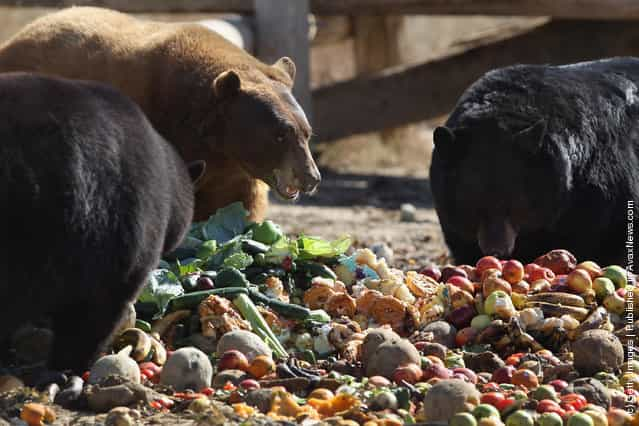
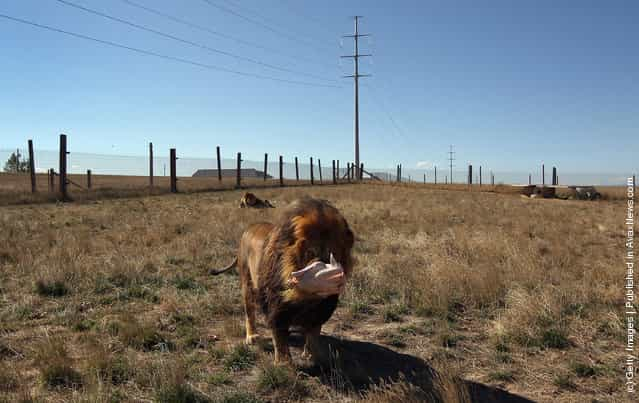
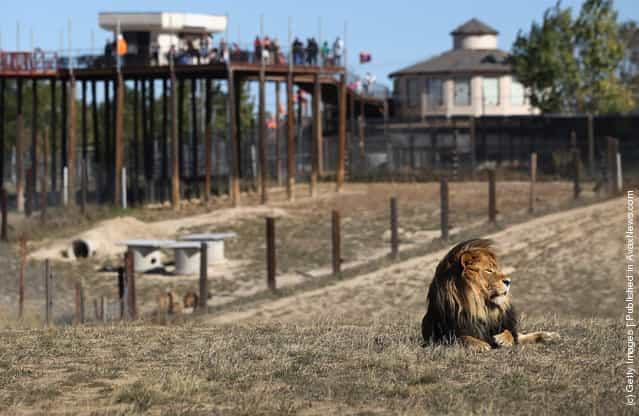
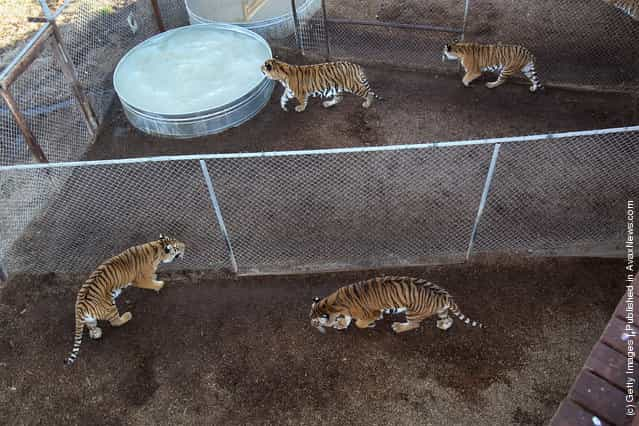
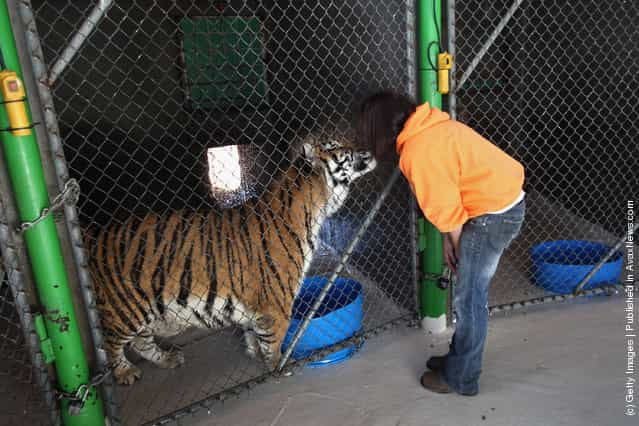

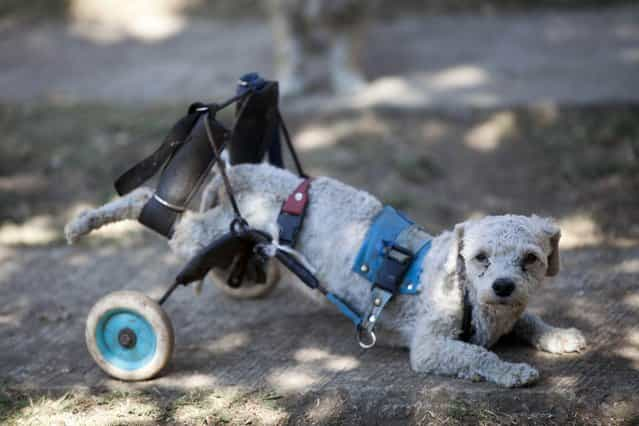

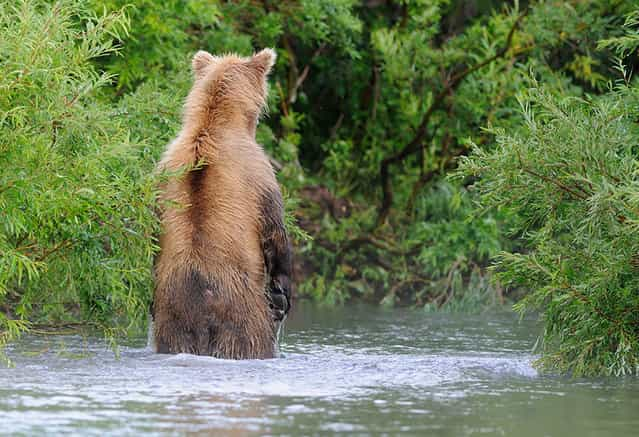


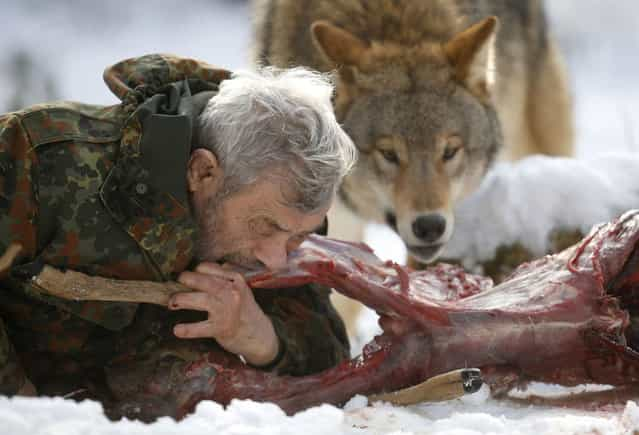
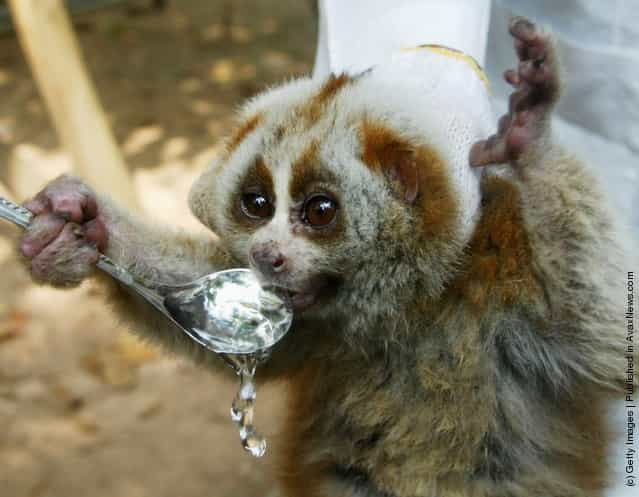

![Rare [Hybrid] Total Solar Eclipse Rare [Hybrid] Total Solar Eclipse](http://img.gagdaily.com/uploads/posts/fact/2013/short/00010c55_medium.jpg)

